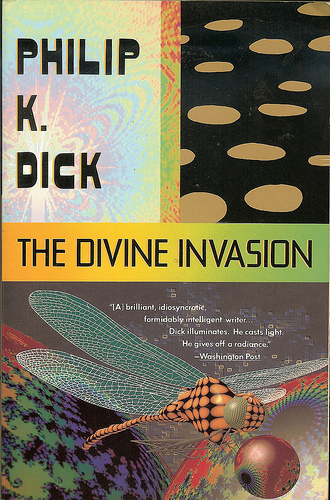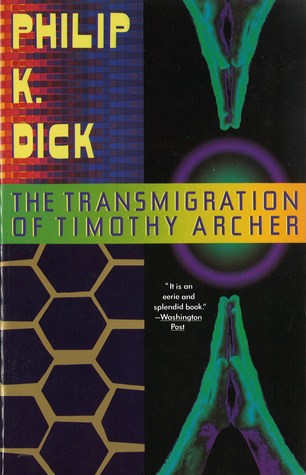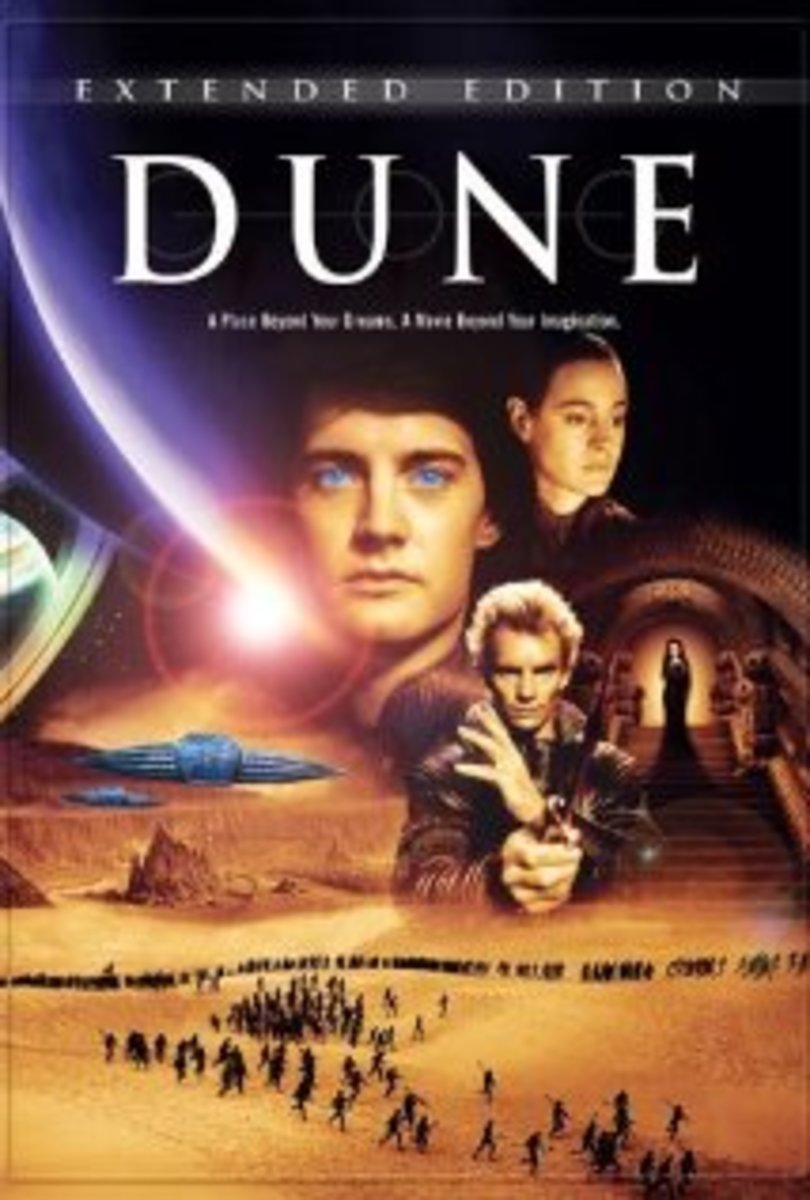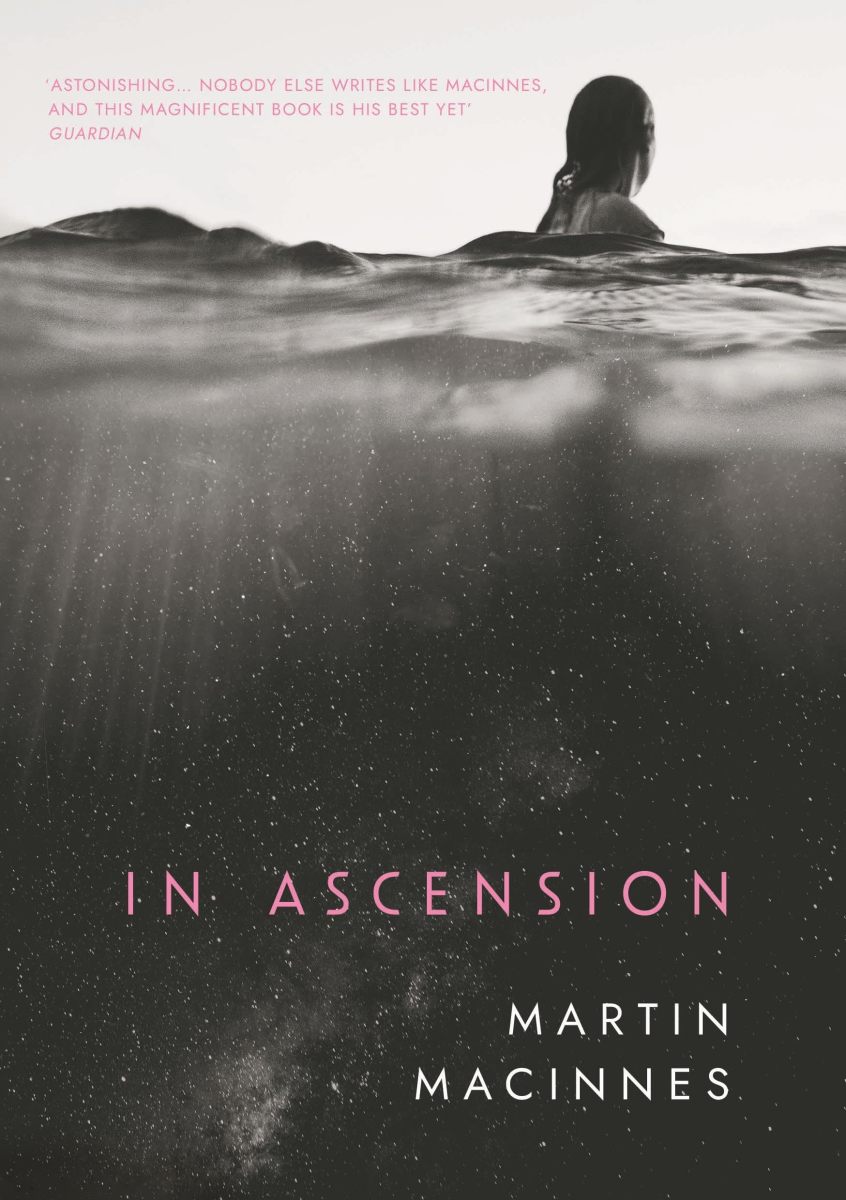Philip K. Dick Trilogy: (A Three-Book Review)

Preface
Let me open this review by, once again, saying what I usually say about the work of Philip K. Dick. Mr. Dick is the writer for readers who think that they do not like science fiction. To my way of thinking, there are at least four reasons for this.
1. Philip K. Dick's novels tend to be under two-hundred-fifty pages, very concise by today's standards. As you know, many writers today seem to need two or three hundred pages just to clear their figurative literary throats. One can often read Mr. Dick's books in a single sitting, if you like.
2. Philip K. Dick's science fiction novels do not do the things that people who think they do not like science fiction, do not like about most science fiction.
- Dick's novels are not from the family of so-called hard science fiction. Hard science fiction can be defined as fiction in which the imaginatively drawn scientific/technological apparatus persists throughout the story, as a prominent feature, or "character" of the story. That is to say that there is no movement of the story, that is not accompanied by the assertion of the scientific/technological apparatus.
- "Hard" science fiction tends to be rather technically dense in its language. As I have said elsewhere, I believe the reason for this is the fact that hard science fiction often seeks to make real some kind of myth. It is this desire to bring a concrete conception of the mythic, which is the driving force behind the technical density of language and conceptualization in hard science fiction. For example, in Greg Bear's novel City at the End of Time, the fiction city of Kalpa can be thought of as "Heaven," in human/alien/hybrid evolutionary terms, of course. Because Mr. Bear sought to make "Heaven" "real," he brought to bear enormous imaginative detail and technical density of language to give real flesh and blood to the "myth" of Heaven. Does that make sense? I believe that is the general story of "hard" science fiction.
- But for people who think that they do not like science fiction, Philip K. Dick's work does not make a character out of the imaginatively drawn scientific/technological apparatus; it does not exist as a persistent force for its own sake. What I'm trying to say is: Philip K. Dick's novels begin with a very basic imaginatively drawn scientific/technological apparatus, which serves as a launching pad into a world of ideas around which the story is constructed. For example, in Mr. Dick's novel Eye in the Sky, he causes the reader to speculate about what it would be like to walk around in other peoples' minds. The protagonists are launched into this adventure by an accident that happens at a science exhibit. Their task becomes that of making their way back home to the "real" world; but you see, the imaginatively drawn scientific/technological apparatus is not invoked again once the adventure is begun. That is to say, the story becomes a fantasy tale of negotiating multiple psyches.
- There is another thing that Philip K. Dick's science fiction novels do not do---which I think people who think they do not like science fiction, do not like. Dick does not engage in what I call "over-exoticization" of nomenclature.
- What do I mean by the "over-exoticization" of nomenclature? Well, in hard science fiction events tend to be set in the far distant future and/or on worlds other than Earth, in other dimensions or millions of "light years" away. Because of this writers work hard to give names to people and things that sound suitably "alien" or "futuristic." What this often means is that you have a five hundred or even a thousand page novel, say, full of names with all kinds of spaces and apostrophes, and the like, which contain several syllables, and because of the many, many, and many characters introduced, it is hard to keep everybody involved in the story straight in one's mind. That is to say, I certainly find this to be the case, especially given my own right-brained orientation.
- Philip K. Dick does not do that. For example, in the second novel of the trilogy there is an Earth, global supercomputer. You know what its called? Big Noodle. Seriously, this fantastically important machine is given a plain, easy to remember name of "Big Noodle"; and that kind of thing is generally indicative of what we might call the science fiction nomenclature style of Philip K. Dick.
3. I would say that unlike much of science fiction (especially "hard" SF), Mr. Dick's work tends to be, certainly, character-centric, when not character-driven.
Definitions:
a. Character-driven: What I mean by a story that is such, is that the story is created from the inside-out. That is to say, there is no story unless it is generated by the thoughts and feelings of the protagonist(s).
b. Plot-driven: What I mean by story that is such, is that the story is created from the outside-in. That is to say, the story is generated by events descending upon the protagonist(s), forcing a reaction from the character(s).
What I am saying is that I find Philip K. Dick's novels and stories to be gratifyingly either character-driven or character-centric. This is a subjective judgment, on my part, about how the man put stories together; and simply a matter my personal preference.
However, one of the things that I think might turn off people, who think that they do not like science fiction, is the perception that they are confronted by a book of many dozens of characters, who are assaulted by a swirl of events, without the reader having been given a chance to get to know who these people are. On the other hand, authors make stylistic choices; and there are those who choose to write more plot-driven stories. No problem, of course.
However, I simply find the character-driven and character-centric storytelling of Philip K. Dick more tightly focused, economical (given the relatively concise nature of his books), and easier to follow.
4. There is another thing about Mr. Dick's fiction, which is well suited to the right-brain oriented reader, such as myself; and that is the way his science fiction tends to trans mutate into fantasy. Now, this is related to what I have been saying about the way in which the imagined scientific/technological apparatus Philip K. Dick draws, primarily serves the purpose of launching the reader into a world of ideas.
Let us simply define science fiction as fiction powered by imagined science and technology; and fantasy as fiction powered by imagined magic. What we frequently see with Philip K. Dick's science fiction, interestingly, is that it tends to flow from science fiction to fantasy. How does that work?
Well, again, as I say, Philip K. Dick's science fiction tends to begin with an imagined scientific/technological apparatus, which does not behave as a persistent feature of the story, but serves as the launching pad propelling the reader into a world of ideas. At this point, after "launching," the action can be said to be thereafter propelled by "magic," for all intents and purposes.
In other words, with the science fiction of Philip K. Dick, the imaginatively drawn scientific/technological apparatus serves only to deliver the reader and protagonist into another reality, where the "rules" are very different from the one we have been delivered from. But the apparatus that took us there no longer serves any function.
Does that make sense?

Valis
Today we're going to consider a trilogy of novels by the late, great science fiction writer, Philip K. Dick (1928-1982).
First up is "Valis." The edition I'm holding in my hand is paperback, two-hundred-twenty-eight pages, not including the appendix. It was first published in 1981 by Mr. Dick; the first Vintage Book edition was put out in 1991.
We are dealing with a trilogy of books, though each one can be read quite satisfactorily as a stand-alone book. That is to say, we are looking at three separate stories, not actually one continuous tale in three parts.
We are dealing with a trio of novels that are concerned with "the meaning of life." The three books feature three tales of three protagonists, driven to existential crisis by life circumstances, who seek out God, who seek out validation as to the "purpose of life."
Valis is the funniest novel in the series, in my opinion. It concerns the crisis-driven spiritual striving of a schizophrenic man called "Horselover Fat," ---really, that is the character's name. Mr. Fat suffers both trauma and a "miracle," perhaps. His wife divorces him and move far way with their son; and a close woman friend of his kills herself. He watches another female friend of his, slowly lose her battle with cancer, waste away before his eyes, with, seemingly no emotional/psychological resistance on her part. That is to say, she is maddeningly resigned to her fate.
Horselover Fat also experiences a "miracle." It seems that a pink laser hit his head, one day, and endowed him with a miraculous insight, which allowed him to know of a hidden condition his son had, which had flown beneath the radar of medical professionals. Fat was able to alert the doctors and his son's life was saved.
As a result of all of this, Horselover Fat goes on a hilarious mission to "find God," and, more or less, ask him ('What's the deal?').
Let me say something about the "literary" to "genre" proportions of the work. When talking about "genre" fiction (SF, mystery, crime, thriller, horror, etc.), there are a couple of categories that I use. I talk about what I call literary genre, near literary genre, and very occasionally I might unroll a term, literary-genre hybrid.
Definitions again:
"Literary": To me, a literary novel or story is simply one whose action is not centered around any specific goal. The situations are not "cut-and-dried" and, thus, do not necessarily lend themselves to straightforward resolution. Thus, the protagonist has no impetus toward specific action.
"Literary-Genre": To me, a genre novel or story is "literary," if one can remove the genre element and still be left with an interesting story.
"Near-Literary": A genre novel or story is "nearly" literary if one can almost but not quite remove the genre element from a story or novel and "almost but not quite" be left with a viable story.
"Literary-Genre Hybrid": To me, this is a novel or story in which it is very difficult to distill out the genre and literary elements, in contrast to the way you can theoretical distill hydrogen and oxygen out of water.
Now, as I said, Philip K. Dick was known, during his time, as a writer of science fiction, and that is true. But he wrote different kinds of books and stories.
Anyway, when you read Valis, it will not quite "feel" like a science fiction novel, for most of the way. You will find that there is no Point A starting place of what I have called the "imaginatively drawn scientific/technological apparatus" whose purpose is to "launch the reader into a world of ideas."
The novel will present as what it is: a novel of one man's spiritual seeking. That is, indeed, what it is.
However, eventually (albeit very briefly) the "science fiction" element will make itself apparent and clear. For this reason, I think of "Valis" as a "near-literary" novel.
By the way, I don't want to give too much of the plot away, but I will give you an obscure hint about the ending. If any of you have ever seen the movie, Usual Suspects, you will have a clue about how the adventures of Horselover Fat conclude.

The Divine Invasion
Next up is "The Divine Invasion," in paperback, also of Vintage Books. The First Vintage edition also came out in 1991; and this volume, too, was originally published by Mr. Dick in 1981. The novel is a relatively brief two-hundred-thirty-eight pages.
There is something else I feel I should make clear about this trilogy. These three novels are not science fiction thrillers, as I usually define the term, "thriller." I define a "thriller," in genre literature as a story containing a series of interrelated events, each charged with what I call "momentous immediacy," which lead to a "shattering conclusion," of climax.
That is not what we have here, with this Philip K. Dick trilogy; and perhaps that is unusual, that a science fiction novel is not a "thriller;" although many of Mr. Dick's science fiction novels do indeed fit the bill of the thriller.
These science fiction novels are novels of spiritual seeking. In fact, it is probably more accurate to characterize them as science fiction dramas, if you will. As such, they each have a distinctly literary quality, as I usually define the term, "literary," as it relates to genre fiction---in that the "action" in these novels never congeal around a specific mission that one finds in "genre" literature, you know, such as (save Earth from Martians; stop the terrorists before the bomb goes off at JFK Airport; find and arrest the killer; and so on and so forth).
I have said that the first novel in the series, Valis, is what I would call "near-literary," in that one could almost remove the "genre" element of the story, and still be left with a coherent, intriguing, workable story---but not quite. There is a small thread of the imaginatively drawn scientific/technological apparatus upon which the story ultimately hangs.
The Divine Invasion, the second novel in the trilogy, is what I would call "science fiction-transformed-into-fantasy." As I've said, a distinctive feature of Philip K. Dick's science fiction is that, unlike "hard" SF, he often uses the imaginatively drawn scientific/technological apparatus as a mere launching platform from which to launch the protagonists and the reader into a world of ideas---Philip K. Dick's ideas.
I should also mention, here, that this trio of "spiritual seeking" novels are designed to appeal to and stimulate the intellect rather than the heart. They concern two very basic, deep questions of religious philosophy: How do we know God exists? and What is reality?
The basic story is set in the far distant future, one in which human beings are colonizing other planets. This story recreates the virgin birth of Jesus to Mary. This time God is incarnated into the womb of a woman, who is dying of cancer. She, her baby, and a male friend of hers return to Earth.
The book is called "The Divine Invasion," and at one point to story threatens to become a thriller, as this thread is taken up. It seems that Earth authorities become aware of the approach of a supernatural being of some kind (a being they take to be demonic); they believe that nefarious actors are trying to smuggle that being into the Lord's primary world, Earth; and, of course, that must not be allowed.
This concern with keeping out spiritual "undesirables" shows echoes of the whole immigration discussion being entertained by Republicans in the context of the American presidential primary elections.
Anyway, inexplicably, the narrative thread of an "invasion" is dropped, suddenly and abruptly---unless I'm missing something.
Oh well, I thought to myself, as I took the truncation with a shrug. There is one last point I should make here.
Philip K. Dick was a Westerner, an American, one who was clearly well steeped in the Judeo-Christian (and perhaps Islamic as well) tradition. Mr. Dick's speculative religious philosophy---as he demonstrates it in his novels---shows a strong influence of Hinduism.
Hinduism, as you know, among other things, advocates reincarnation. People live many lives; their souls inhabit many bodies over the life span of the universe; and indeed, the universe reincarnates! Human beings reincarnate and the gods, themselves, reincarnate.
What's more, Hinduism holds that the stress of reincarnation causes us to forget our previous life. The gods are equally vulnerable to this memory wipe due to the stress of rebirth. This is relevant to one of Philip K. Dick's concerns of the nature of reality. An idea Dick seems to put forth in The Divine Invasion is that the fragility of memory is the bridge between realities.

The Transmigration Of Timothy Archer
The last in the trilogy of paperbacks is "The Transmigration of Timothy Archer," also from Vintage Books (A Division of Random House). The First Vintage Books Edition was also put out in July 1991. This volume of the three was originally published by Mr. Dick in 1982. And we're looking at about two-hundred-fifty-two pages.
"Transmigration" of souls, as opposed to reincarnation means that after death the soul can be reborn in the body of another species. Unlike with reincarnation proper, the trans migratory soul is not limited to the species of its origin in corporeal rebirth.
For the purposes of this book, "transmigration" of souls, apparently, also means that the soul of the dearly departed can resurfaces in the body of a living person, and form a composite consciousness and personality with the originally inhabiting soul of said body.
Timothy Archer is the "Bishop of California." He comes to grief over the suicide of his son and the death-by-cancer of his female lover. He experiences an existential crisis, which leads to a crisis of faith. He makes a pilgrimage to try to rediscover his faith.
He dies and either his soul "trans migrates" into the body of a living person, one of the characters of the novel, fusing with the other soul, forming a composite personality and consciousness; or the alleged recipient of this other soul---a psychologically disturbed young man to begin with---has developed a curious delusion.
We have either witnessed a miracle or the final descent of a troubled young man into insanity.
Thank you for reading!






